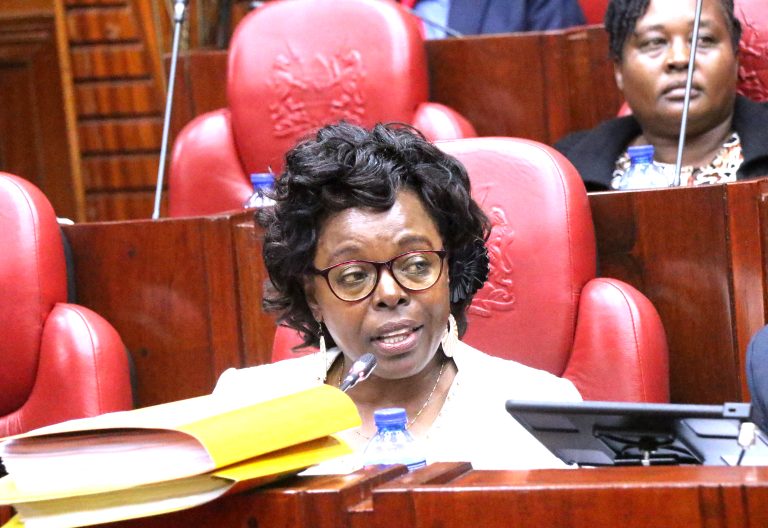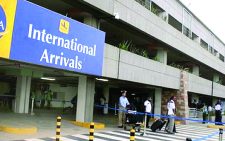Controller of Budget raises alarm as pending bills stand at Ksh684B

The total outstanding pending bills for the national and county governments as of March 31, 2025, are Ksh684.26 billion, a new report shows.
Out of this, the national government’s pending bills is Ksh511.75 billion while counties bills stand at Ksh172.51 billion.
The report of the Controller of Budget, Margaret Nyakang’o, for the last nine months warned that the lack of settling bills not only puts a constraint on suppliers but also affects liquidity issues, especially for Small and Medium-sized Enterprises, and thus called for the immediate settlement of the said bills.
Reads the report: “To address the challenges, the Controller of Budget recommends that the National Treasury fast-track the verification and settlement of pending bills and adopt more realistic revenue projections to reduce reliance on borrowing. There is a need for improved fiscal planning and enhanced revenue collection, particularly from Appropriations-in-Aid.”
The release of the report comes hardly days after National Treasury Cabinet Secretary John Mbadi revealed that a total of Ksh229 billion has been verified and recommended for payment.
Mbadi, who spoke while delivering the 2025/26 budget estimates in Parliament, stated that the Pending Bills Verification Committee had received 65,625 claims worth Ksh571.6 billion, with 57 per cent amounting to Ksh522 billion already analysed.
He said: “The government remains committed to resolving the long-standing issues of pending bills dating back to 2005 as part of a broader effort to strengthen public resource management and restore public confidence in government processes.”
With regards to the National Government, the report says that the pending bills comprised Ksh421.63 billion (82 per cent) for State Corporations and Ksh90.12 billion (18 per cent) for MDAs. The Ineligible pending bills declared as of March, the report says, amounted to Ksh39.75 million.
Nyakang’o warned that the accumulation of pending bills restrains cash flows to businesses, resulting in liquidity constraints as small enterprises have to endure the long wait for the settlement of overdue payments.
Reads the report: “This forces such businesses to either scale back operations, lay off workers, or even shut down operations. It also leads to high government costs of doing business due to the accumulation of interest charges and penalties on unpaid invoices, and it erodes trust between the government and the private sector.”
The report howeve,r shows that the total National government bills have decreased by Ksh4.52 billion from Sh516.75 billion reported as of June 30, 2024.
Reads the report: “The total National government pending bills as of March 31, 2025, amounted to Ksh511.75 billion, compared to Ksh516.27 billion reported as of June 30, 2024.”
According to the report, the State Corporations’ pending bills have increased by Ksh16.35 billion compared to the Ksh405.28 billion recorded in the same period of the financial year 2023/24 while the Ministries, Departments and Agencies (MDA’s) MDAs’ pending bills rose by Ksh8.61 billion compared to the Ksh81.51 billion recorded in the corresponding period of 2023/24 financial year.
The State Corporations’ pending bills include payments due to contractors/projects, suppliers, unremitted statutory and other deductions, and pension arrears for Local Authorities Pension Trust. The highest percentage of the State Corporations’ pending bills (Sh259.67 billion as of March 31, 2025), the report says relates to Contractors/Projects (Development), at 62 per cent, followed by Consumables and General supplies, at nine per cent.
Ineligible pending bills declared as of March 31, 2025, amounted to Ksh39.75 million.
Reads the report: “MDAs’ pending bills are mainly historical bills, comprising Ksh67.13 billion (74 per cent) for recurrent expenditure and Ksh22.99 billion (26 per cent) for development expenditure. In the first nine months of FY 2024/25, MDAs’ pending bills declined by Ksh46.32 billion, comprising Ksh33.60 billion for recurrent and Ksh12.72 billion for development expenditure.
The MDAs with the highest pending bills include the Executive Office of the President – Nairobi Metropolitan Service (NMS), amounting to Ksh13.5 billion, State Department for Public Service – National Youth Service, Ksh14.3 billion, Ministry of Defence, Ksh6.9 billion and the State Department for Medical Services, Ksh4.3 billion.
With regards to counties pending bills, the report shows that the Ksh172.51 billion, comprised Ksh139.88 billion for recurrent expenditure and Ksh32.63 billion for development expenditure.
Nyakang’o regretted that while county governments were required to submit a pending bill payment plan to the Controller of Budget at the beginning of the financial year, as stipulated in the guidelines for approval to withdraw funds from the County, several County Governments did not follow their plans to pay pending bills.














